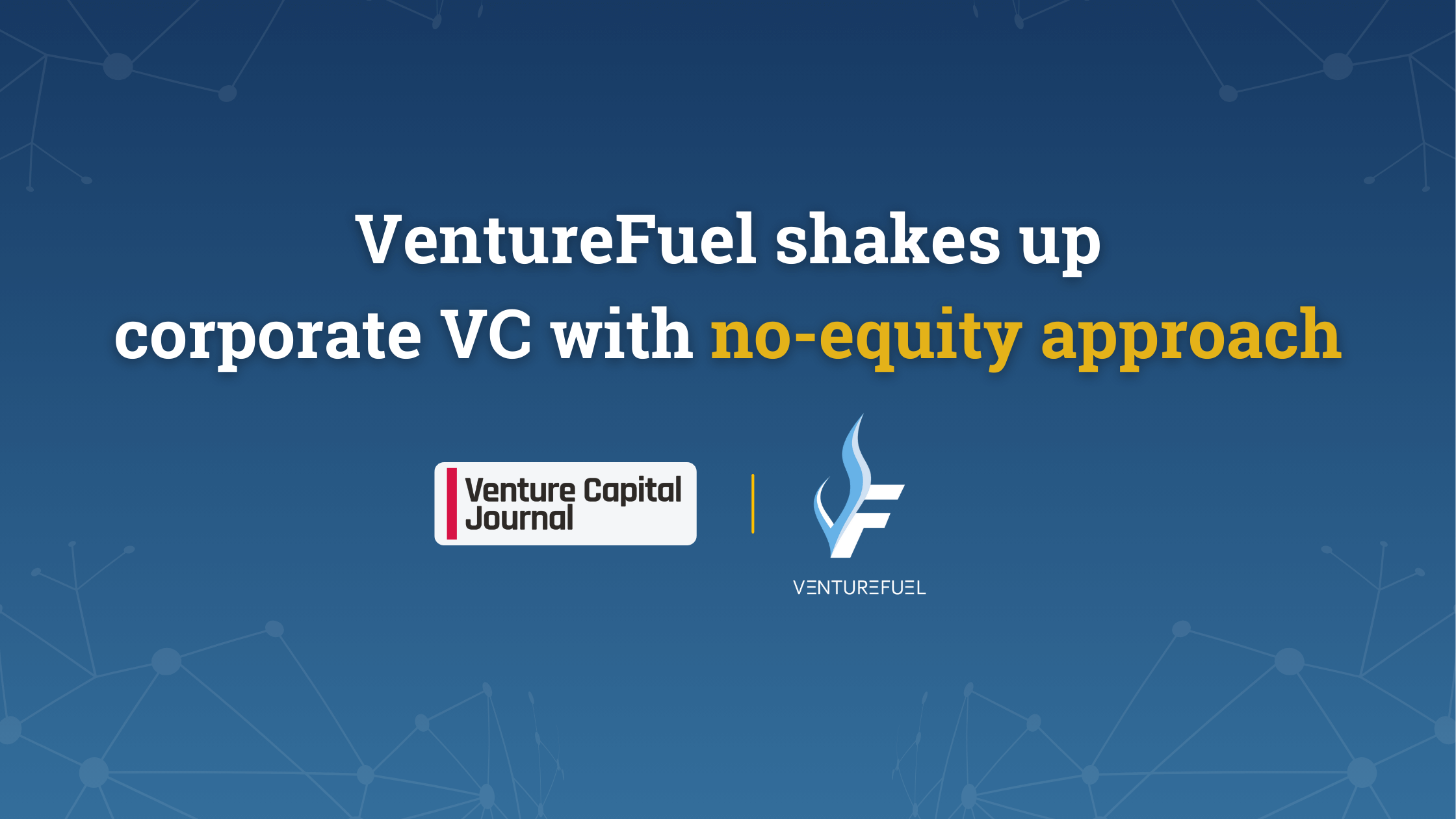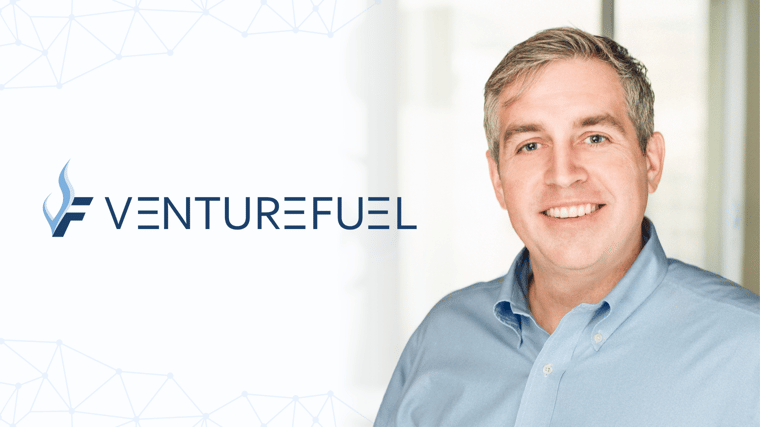
VentureFuel shakes up corporate VC with no-equity approach
 The self-described advisory firm pairs large corporations with start-ups to streamline the process for everyone involved.
The self-described advisory firm pairs large corporations with start-ups to streamline the process for everyone involved.
While the idea of corporate venture capital is nothing new, VentureFuel believes its strategy of a so called no-equity accelerator can streamline the traditional CVC process, leading to better outcomes for both the corporations and start-ups involved. “I love the venture capital model, but I think there’s been an over-focus on the next round of financing and an under-focus on actually getting commercial deals that create a sustainable business that can weather ups and downs in valuations,” VentureFuel founder and CEO Fred Schonenberg tells Venture Capital Journal.
To address that problem, he founded VentureFuel. The firm does not raise capital from LPs, nor does it invest in start-ups, but rather it works as an advisory firm to corporations. VentureFuel runs multi-week accelerator programs in which it takes a problem faced by a corporation and vets a large number of start-ups to identify the one best suited to solving that problem, and then pairs the two parties to use each other’s resources for the length of the program.
“The idea is that we’re an innovation program, usually for a corporation or other large organization, where the outcome is not equity but rather commercial deals, pilots, non-dilutive grants, something along those lines,” Schonenberg says. “A very common outcome of one of our no-equity accelerators is the corporate takes equity at the end of the program, but the checks are bigger because the start-ups have been validated already.”
Schonenberg founded VentureFuel in 2014 after serving as an executive vice-president at fitness digital media company Zoom Media. He had previously founded and led IntroAgent.com, which claims to be the first online aggregator for B2B reverse auctions in the corrugated box industry.
VentureFuel now employs a team of 17 people, split roughly in half between partnerships and operations. Its clients tend to prefer working together privately, but the firm has led a number of public-facing accelerator programs with companies including Comcast NBCUniversal, Dick’s Sporting Goods, the AARP Foundation and the California Milk Advisory Board. The firm’s accelerators have run across a variety of industries including automotive, pharmaceuticals, enterprise AI, material science, and food and agriculture.
Schonenberg says VentureFuel thrives as an extension of a corporation’s existing venture or innovation team, not as a replacement. “We work really nicely with CVCs because most are investing later-stage, basically pre-M&A, which means they’re missing out on everything earlier where the real innovation is happening. We find the start-ups through our network of over 700 VCs, angel and seed investors, we do lots of research, we get it down to a group that are highly vetted and validated, and then the executives basically decide which ones they think are worth running a test with.”
No commitment bias
While there are other firms in the market that help corporations run accelerators, most use the traditional model of raising capital from the company and then going out to engage with early-stage start-ups. Schonenberg says he believes this leads to a misalignment of incentives where the firm just wants the start-ups it has invested in to keep raising, and that may impact its ability to address the problems the corporation is looking to solve. In contrast, VentureFuel doesn’t take any equity in the start-ups it works with, eliminating the possibility of bias, he said.
“I think a lot of the players in this space are doing it to build their own portfolio; they’re getting the corporate to pay for them to invest in start-ups,” says Schonenberg. “The way I always think about it is: if you ask me for the best AI company, and I know two, but one of them I’m an investor in, of course that’s the one I’m going to recommend to you. We built this model so that we can look eye-to-eye with our client and say that this is the best start-up for these reasons, and I’m not thinking about if it’s a venture-backable start-up.”
Schonenberg also believes his approach saves time for founders looking to work with established companies. “When we started this I was really thinking: ‘What if we could identify the large corporations when they have a problem, when they have a budget, and find the right start-up at that time?’ That would be such a value-add for both sides.”
Schonenberg estimates that VentureFuel has analyzed thousands of start-ups this year and that about 70 of them have been accepted into accelerator programs, including 10 enterprise AI start-ups in its recently announced second cohort with Comcast NBCUniversal. The firm ran a generative AI-focused accelerator with the corporation last spring.
Beyond saving time for founders and helping streamline CVCs’ processes, Schonenberg says his firm’s strategy is more efficient for both sides all round. “It’s almost by doing a non-equity accelerator we’re fueling more investment in start-ups by the same companies because they’re getting to kick the tires and see if it’s real and then they’re more likely to really pump some funds behind it.”
